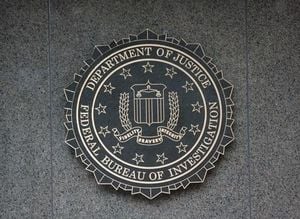OpenAI's recent legal troubles have thrust the tech giant firmly under the microscope, particularly following the news of a major lawsuit filed by some of Canada's leading media organizations. These media companies, including major outlets such as The Globe and Mail, CBC, Toronto Star, and others, are taking OpenAI to court, claiming the company has used their content without permission to train its AI models like ChatGPT. This lawsuit, lodged on Friday in Ontario's Superior Court of Justice, is significant not just for OpenAI, but for the broader tech and media landscapes as they grapple with the intersection of artificial intelligence and copyright law.
The media plaintiffs allege flagship intellectual property rights violations, asserting OpenAI’s actions amount to 'strip-mining journalism.' Paul Deegan, president of News Media Canada, likens the practices of AI firms to 'cannibalizing proprietary content' generated by journalists. The organizations are demanding punitive damages and seek compensation for each unauthorized use of their articles, with figures potentially soaring to billions of dollars.
Legal Actions Echoing Worldwide
This lawsuit isn't isolated. Similar claims have been echoed across the globe, with notable names like The New York Times also pursuing legal action against OpenAI, citing unwarranted exploitation of their writings. This tilt marks yet another chapter in the continuing conflict between traditional media and burgeoning tech companies, wherein media outlets accuse AI firms of benefiting unfairly from their hard-earned content and journalism.
The Canadian lawsuit joins forces with other legal battles worldwide, including one brought forth by India's news agency ANI (Asian News International). ANI claims OpenAI's technology has reproduced its content verbatim without authorization, posing risks not only to its reputation but also to the integrity of information being disseminated online. They argue such actions could lead to misinformation and contribute to public distress.
OpenAI's Response: Advocates for Fair Use
OpenAI has responded to these allegations, asserting its commitment to collaborating with news organizations. The company emphasizes their adherence to 'fair use' principles, saying they utilize publicly available data responsibly. OpenAI suggests they are open to dialogues with media establishments to explore mutually beneficial partnerships, which may pave the way for future content sharing frameworks.
Despite these reassurances, skeptics within the media industry continue to voice concerns about how AI systems could redefine content ownership, usage rights, and the overall marketplace for news. For many, it is too late; the informed reader risks being misled by AI outputs detached from their responsible sourcing, they argue.
OpenAI's Content Licensing Strategy
Complicative as the legal terrain may be, OpenAI is actively pursuing partnerships as part of its content licensing strategy. Recently, the company announced collaboration with Future, the parent of websites like Tom's Guide and PC Gamer. This agreement implies not just content sharing, but also ensuring attribution to original sources of readership. OpenAI's COO, Brad Lightcap, emphasized how the partnership aims to amplify user access to reliable content, potentially marking a step forward in acknowledging and protecting the rights of content creators.
Still, this proactive approach arrives flavored with challenges. Tensions with publishers like The New York Times and various Canadian outlets linger, blurring the lines between AI development and intellectual property rights. Many media organizations are demanding financial compensation reflective of what they perceive as unpaid dues for their contributions.
Innovations and Recent Developments
This litigation arrives during OpenAI's wave of noteworthy innovations as they recently ventured out with new AI capabilities tied directly to subscription services. The reveal of the ChatGPT Pro subscription offers users access to advanced models and reasoning capabilities. This move, alongside promises of improved response times and functionality, signals OpenAI's intent to maintain its leading edge within the tech arena.
These technological advancements coincide with consumer demands for greater proficiency and effectiveness from AI models; the incorporation of new reasoning models includes features such as image reasoning capabilities. Such enhancements, meanwhile, aim to solidify OpenAI's market presence amid mounting competitive pressure from other firms eager to share their pieces of the AI pie.
Future Outlook: Markets and Expectations
While the legal battles may present substantial risk factors for OpenAI's operations, the company remains optimistic viewing potential resolution and partnerships as paths forward. The AI sector is seeing rapid evolution, and with big players like Elon Musk weighing in on the broader dialogues concerning AI ethics, it is clear both the tech industry and media faces an era fraught with challenges and possible transformations.
What remains uncertain, amid the allegations and partnership developments, is the eventual outcome of these lawsuits. They could set new precedents on what constitutes fair use of copyrighted material within AI training regimes, fundamentally altering how tech giants like OpenAI engage with content creators.
Both sides of this legal tug-of-war seem braced for the long haul, and as both technology and journalism continue to evolve, all eyes will remain fixed on how this story unravels.



